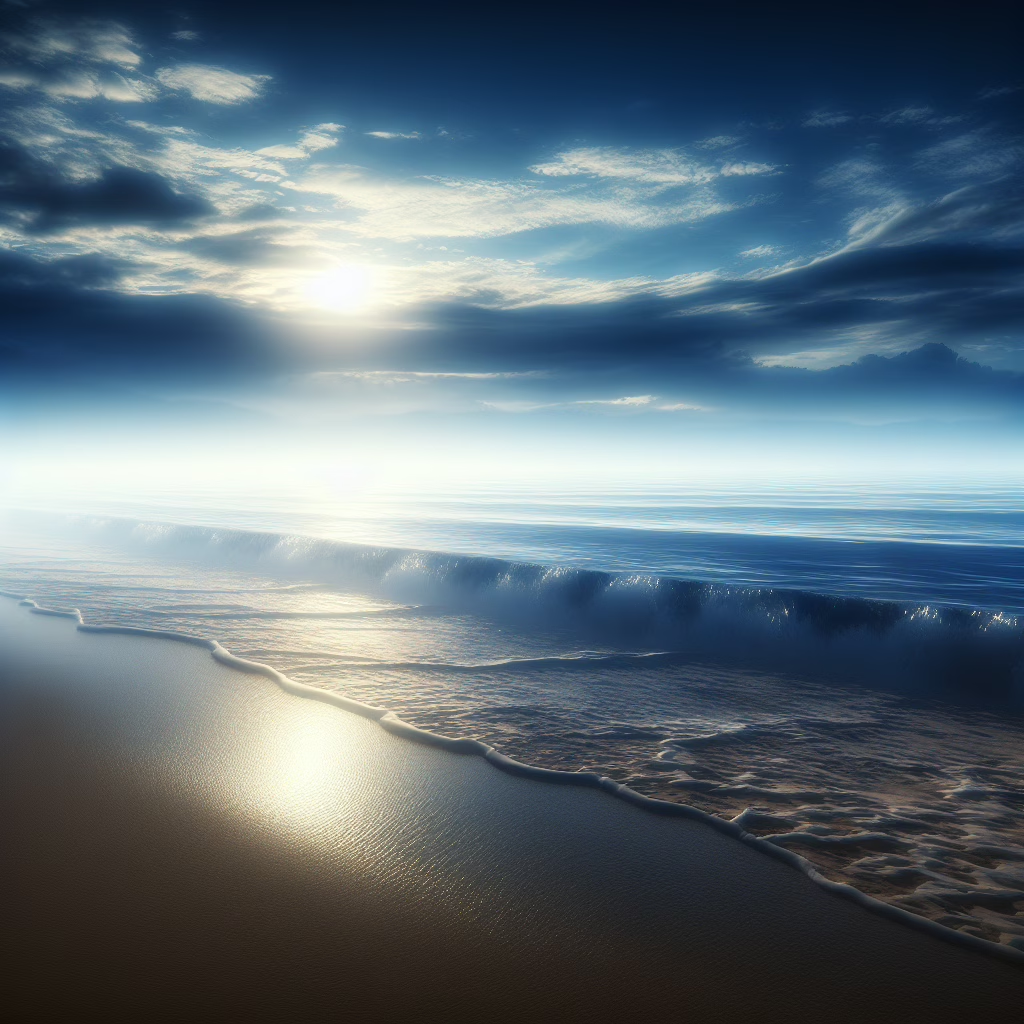The Mysterious Sound of the Deep Blue
Picture this: you’re lounging on a beach, sipping a piña colada, and suddenly, the ocean lets out a sound so loud it could wake Poseidon himself! Welcome to the world of the loudest underwater sound ever recorded, a phenomenon that not only piques our curiosity but also raises eyebrows (and perhaps some waves) among marine scientists. This cacophony, known as the ‘Bloop’, was detected in 1997 by the National Oceanic and Atmospheric Administration (NOAA) and has sparked debates about its origins ever since.
What Exactly is the Bloop?
The Bloop isn’t just any sound; it’s like the ocean’s version of a rock concert—only this one has no cover charge. Spanning over 5,000 kilometers, this massive underwater noise baffled researchers with its sheer intensity and mystery. Scientists initially speculated that it could be the call of an undiscovered sea creature or even a colossal iceberg breaking apart. However, it was later determined that this sound likely originated from ice quakes in Antarctica.
But let’s be honest: ice quakes don’t sound nearly as thrilling as a monstrous sea monster lurking beneath the waves. So, while we may not have discovered a new aquatic giant ready to star in its own blockbuster film, we did uncover some fascinating facts about underwater acoustics!
The Science Behind Underwater Sounds
Underwater sounds travel differently than they do through air, which is why your friend’s voice sounds like a whale’s song when you’re submerged in water. In fact, sound travels about four times faster in water than in air! This means that if you want to hear your buddy’s latest gossip during a swim, you might need to hold your breath for just a tad longer.
The ocean is filled with various noises—from the gentle rustle of kelp to the enthusiastic calls of dolphins. Marine animals often rely on these sounds for communication and navigation. Imagine trying to throw a party without music; it would be utterly silent! Just like humans, many creatures use these sounds to express themselves.
Why Does It Matter?
Understanding the loudest underwater sound ever recorded—and others like it—offers crucial insights into marine ecosystems. It helps scientists monitor climate change since changes in ice formations can alter these acoustic patterns. By studying these sounds, researchers can learn more about how our planet is changing and how marine life is adapting (or struggling) in response.
Moreover, this knowledge can assist in protecting vulnerable species from human-made noises such as ship traffic and sonar technology. Just think: while we enjoy our leisure time at sea, our aquatic friends might be trying to send us an SOS!
How Do We Record Underwater Sounds?
Recording underwater sounds involves some high-tech wizardry! Scientists use hydrophones—special microphones designed for underwater use—to capture these aquatic melodies. Imagine being an underwater DJ mixing tracks with what Mother Nature provides! The data collected helps scientists analyze everything from animal communication to environmental changes.
- Hydrophones can be deployed in various ocean depths.
- They can capture sounds from different marine species.
- Data helps track changes in marine ecosystems over time.
Interestingly enough, listening to these sounds can sometimes reveal hidden stories about our oceans. The next time you’re at an aquarium, just think about all those little fish swimming around—they might be communicating with each other through their own unique symphonies!
Exploring the Ocean Sounds
The Bloop isn’t an isolated case. Various other ocean sounds also intrigue researchers, such as the sounds made by methanogenic bacteria and the low rumbles of tectonic activity. Such acoustics allow scientists to piece together a detailed picture of underwater activity, enhancing our understanding of ocean health and biodiversity.
Conclusion: Let’s Keep Listening!
The loudest underwater sound ever recorded may not have been what we initially thought—a mythical beast lurking in the depths—but it has undoubtedly opened up new avenues for research and discovery. As we continue to explore our oceans, let’s keep our ears open (and maybe grab some popcorn) for what other fascinating sounds await us beneath the surface.
So next time you find yourself near water, whether it’s at the beach or your local lake, take a moment to appreciate the symphony of ocean sounds around you. Who knows? You might just hear something extraordinary!
We’d love to hear your thoughts on this intriguing underwater phenomenon! What do you think about the loudest underwater sound ever recorded? Share your thoughts below!
Special thanks to Daily Galaxy for their insightful article that inspired this deep dive into oceanic mysteries!

